In search of more economic leases, the Venezuelans who migrate advance to the informal settlements located in the peripheries of the cities of Colombia. In these communities they live with displaced Colombians victims of the armed conflict. In La Fortaleza, in Cúcuta, 800 families live, of which 300 are Venezuelan. The lack of basic services and legal access to land puts these people in a risk zone.
Caracas. On one side of the Western Road Ring of the Colombian city of San José de Cúcuta there is a junction on the right that leads to La Fortaleza. Many Venezuelan migrants undertake – from the Simón Bolívar International Bridge – 19.4 kilometers in their search.
As they pass, the tricolor parapets that parade fan a warm terrain inhabited mostly by displaced Colombians after the armed conflict. A work of 2017 of the Group of Prospective Investigation and Human Development and the Legal Office of the Free University Sectional Cúcuta revealed in a survey to 187 inhabitants of that community, that 43.08% are victims of forced displacement.
Approximately nine years ago La Fortaleza became a human settlement that was formed on private land on the outskirts of the city, in which 1,000 people lived in precarious conditions.
The Venezuelans have also arrived at La Fortaleza to build a new home on copper-covered dirt roads, sheets of zinc tied with wires and pressed by stones. Perhaps these lots, as they call them, do not have the strength of the house they left in Venezuela, but the stability to take back the life that was not possible for them kilometers ago.
Juan de Dios Campos, who is 8 years old living in La Fortaleza, says that “every day Venezuelans arrive asking for a small lot to rent”. He says that since two years ago there were already some migrants in the area, for the past year there have been many more. He believes that in La Fortaleza there may be 1300 lots, but he does not know how many may be occupied by Venezuelans.
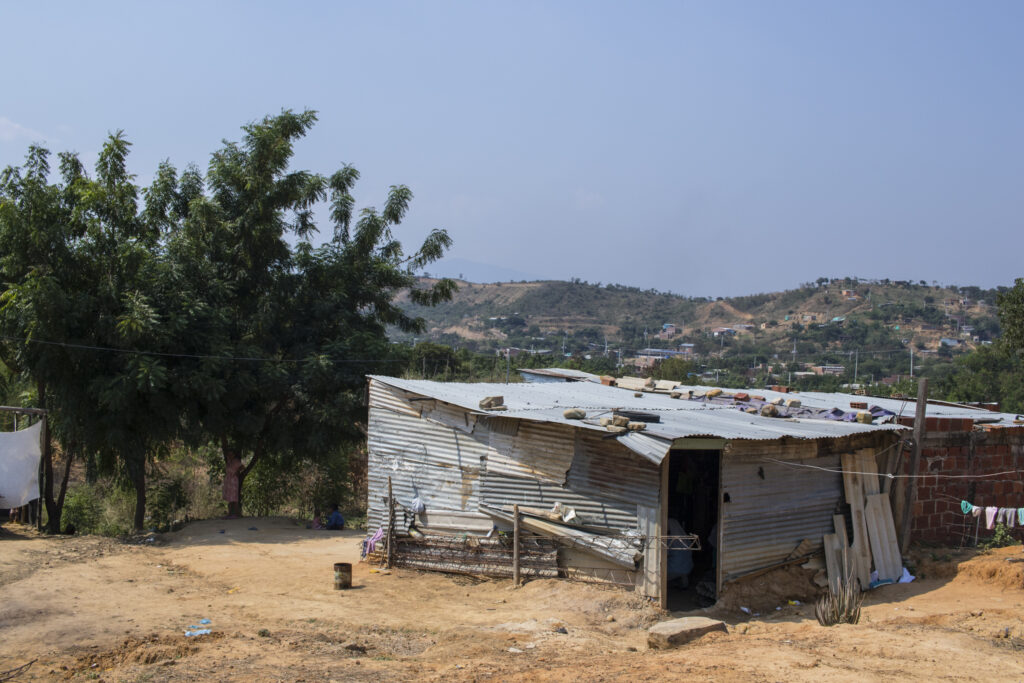
Making the decision to live in informality, in a periphery, in a settlement where eight or more families coexist in a contiguous way, without legal access to land or public services, makes visible the complex humanitarian emergency from which Venezuelans flee to settle in Colombian communities.
Heydi Dayana Lemus, Cruz de Lina Celis and Katiuska del Valle Briceño are two of the three Venezuelan families who met at a shelter in Cúcuta and have lived together in the same lot in La Fortaleza for three months. In total there are 10 people who share that same space: 5 women and 5 children.
The Jesuit Refugee Service of Norte de Santander (SJR) began noticing the arrival of Venezuelans since 2014. By then, small families were involved: “At this moment there is a massive arrival of the Venezuelan population,” said Oscar Calderón, coordinator of the SJR.
The United Nations High Commissioner for Refugees (UNHCR) registers, as of May 20, a total of 3.9 million Venezuelan refugees and migrants in the world, of which 3.1 million are in Latin America and the Caribbean . Of those, only 1,459,426 have regular status, including residence permits. According to Migración Colombia, 1,260,000 Venezuelans are located in Colombian territory.
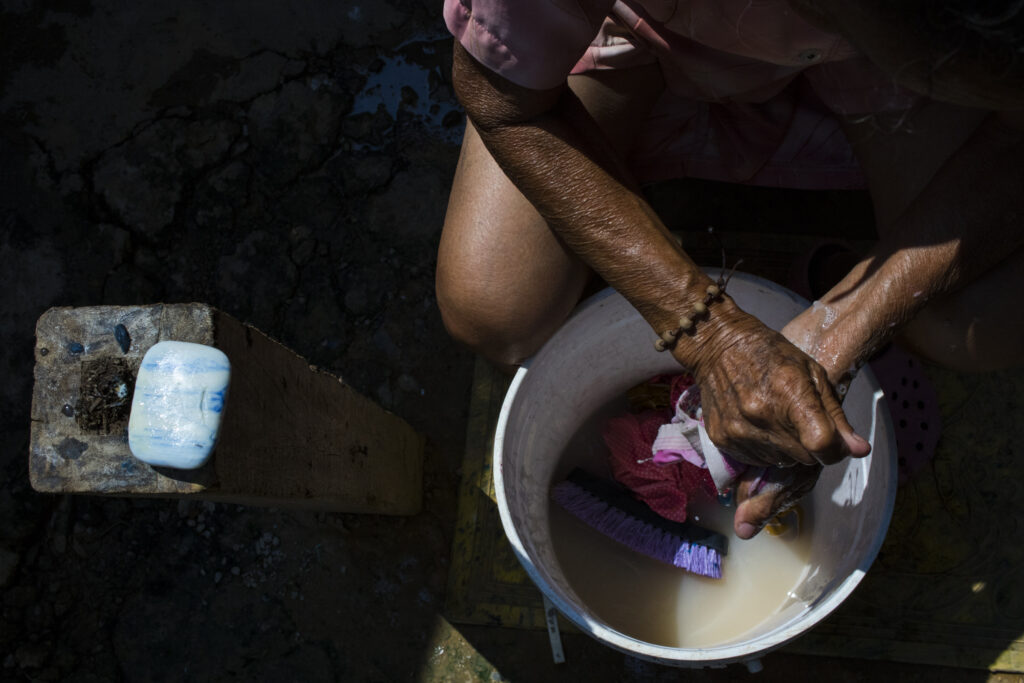
Data from the Techo Colombia Program -organization that works to overcome poverty and habitat development- indicates that in La Fortaleza there are 10 sectors and a total of 800 families, of which 300 are Venezuelan and, secondly, Colombian returnees .
Since 2006 they work with settlements located in Bogotá, Cali, Medellín, Barranquilla and Cartagena. In April, along with the Rita Foundation, they were in eight communities of Cúcuta to develop projects in those locations.
The UN estimates that 104 million Latin Americans live in settlements in a situation of poverty. “These populations must subsist by their own means, with the constant violation of their rights and the exhausting test of their capacity for resilience”, considers the Colombia Techo Program.
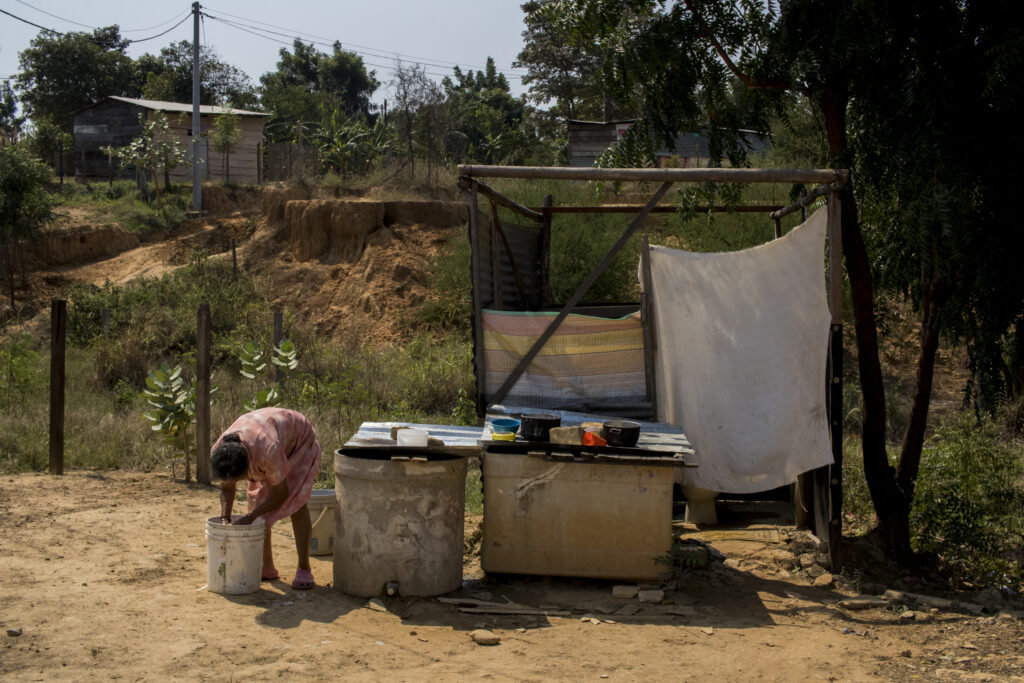
In 2015, this platform, with a presence in 19 countries, accounted for 125 human settlements in Bogotá. Lina Ontibon, social director of the Techo Program, says that the country does not have official figures on the exact amount, however, stresses that the organization maintains activity in at least 50 informal settlements.
Ontibon says that the formalization of a settlement has to do with territorial planning plans. Explains that there is delay in legalization because they do not have the resources to take the aqueduct or the sewerage, pave the roads or supply all the needs as a legalized settlement.
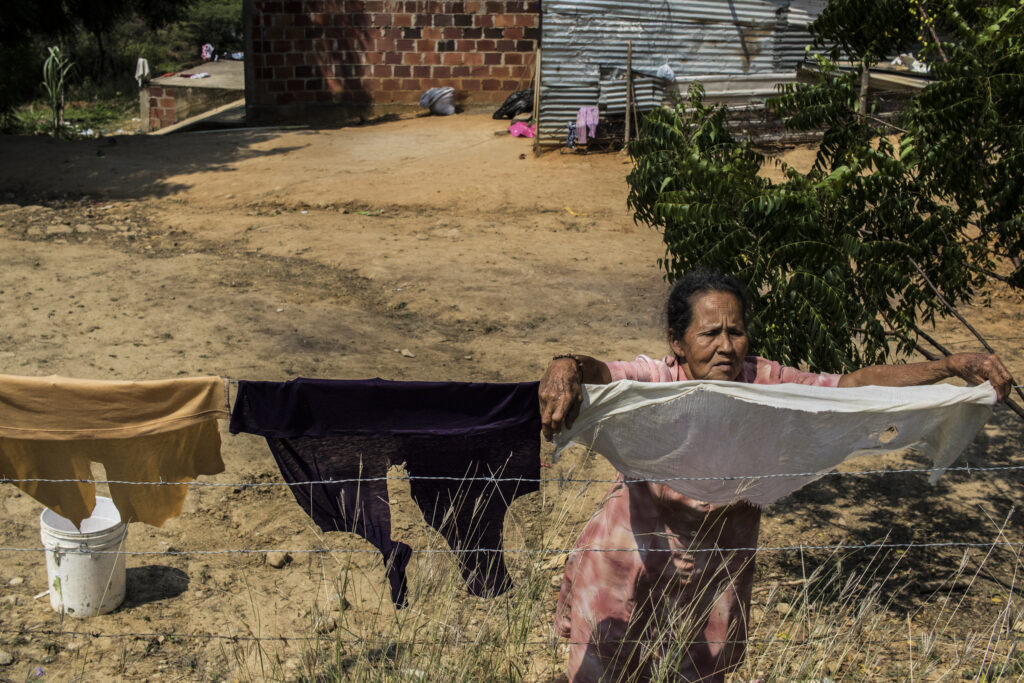
The presence of Venezuelans in these communities increases. In the municipality of Soacha, close to Bogotá, on the initiative of community leaders conducted a census in December last year: In Rincón del Lago, Buenos Aires, San Rafael and Los Pinos registered 143 Venezuelan migrants.
“In these four communities, 800 families can live; 143 Venezuelan inhabitants is a small number, but it begins to be significant with the passage of time, “warns Ontibon.
“There we found an average of 6 inhabitants per dwelling. It is something that we have seen a lot, not only in Bogotá, but in all the settlements where they are located. They rent a house and share it, “he adds.
After crossing the border, Venezuelans seek to obtain cheaper rents, the peripheries are an option. To rent a lot is worth approximately 200,000 pesos.

Ontibon says that in La Fortaleza a lot of regular size could cost 1,000,000 pesos, about 350 dollars. Others can reach $ 3,000 if they are located in the lower part of the neighborhood.
The Jesuit Refugee Service of Norte de Santander (SJR) counted that 2,000 Venezuelans lived in the street due to the impossibility of paying a rent. Oscar Calderón, coordinator of the SJR, explains that these people saw in the marginal zones the possibility of living and not paying rent.
Generally 50% of the families, according to the Techo Colombia Program, do not have legal access to the land. Some settlements are regularized through community negotiations with the owners, at the moment, it is not the case of La Fortaleza.
“In many settlements what happens is that the owner has allowed the entry of families, there is a situation of irregularity, of informality in the possession of the land, but not necessarily of illegality,” says Ontibon.
The Techo Program, for example, could not build homes at this time in La Fortaleza, as it would accelerate a process of possible eviction. “We have to see what is going to happen at the legal level and territorial order in La Fortaleza,” says Ontibon.
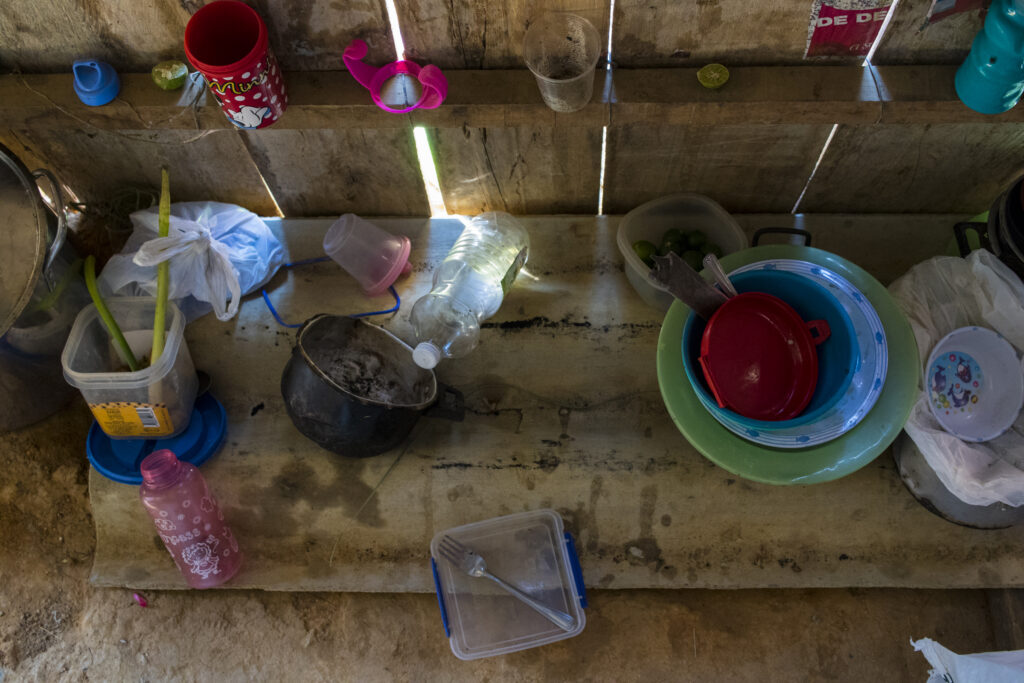
Population at risk
In the settlements one lives in emergency. Ontibon clarifies that it is not linked to the arrival of Venezuelans. it is a situation that “rather highlights” the precariousness in which the community lives.
The risk for both Venezuelans and Colombians is latent. Calderón explains that they are exposed to possible natural disasters due to the type of terrain and that they lack public investment in health and education services, in addition, and that they must deal with precarious roads and lack of sewers and drinking water.
“These are settlements in which these services are not guaranteed, people transport water from many places or it is an artisanal system of hoses that does not correspond to safe access,” says Calderón.
In the settlements, the presence of out-of-school children is high, says Calderón, either because of collapsed educational services or the lack of infrastructure. He thinks that given the high vulnerability of the migrant family, “access to education does not seem to be a priority in the midst of the need to look for water, food, search.”
In La Fortaleza 42 Venezuelan children, between 4 and 14 years old, receive classes is an enabled space in the Missionary Center Nueva Vida Misericordia Every Day.
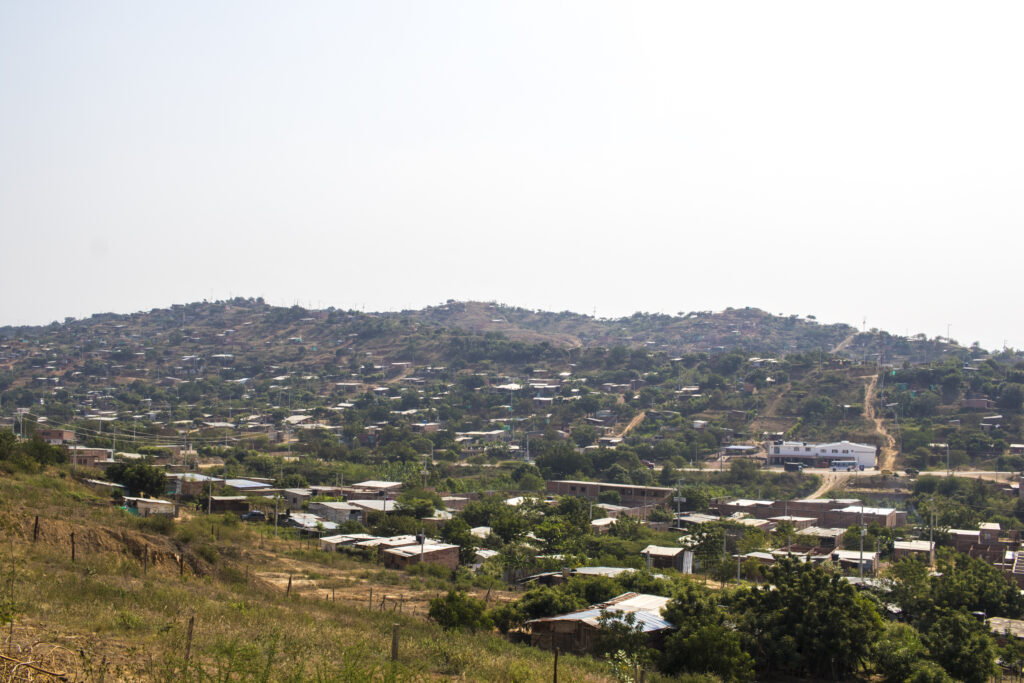
“They have three teachers who come from Venezuela who teach them. They are guys who could not be normalized in school quotas because they are uneven, “says Ontibon.
They also serve 300 daily lunches to Venezuelans and Colombians. The Central de Abastos de Cúcuta collaborates with vegetables and the World Food Program, through the Casa de Paso Divina Providencia, allocates provisions. The place is staffed by sisters Gloria Patricia Celis and Martha Celis.
The Techo Program is interested in strengthening the project of these sisters, supporting the infrastructure of the classroom. They also hope to be able to contribute to the United Nations in the construction of the salons for the migrant service points located on international bridges.
Finally, evaluate the possibility of building housing in the settlements without discriminating if they are Venezuelan or Colombian families. The organization depends on the donations to execute the projects.
“Here I can give my daughter enough food”
Heydi Dayana Lemus is a Venezuelan from Trujillo state. He arrived in Colombia a year ago. She is 19 years old and has a one-year-old daughter:
“My grandmother has always told me that one can endure hunger, but the creature can not. She encouraged me to come to Cúcuta, she is from here. I have done well, many have shaken my hand. If I need something, I also have the possibility of obtaining it, in Venezuela no.
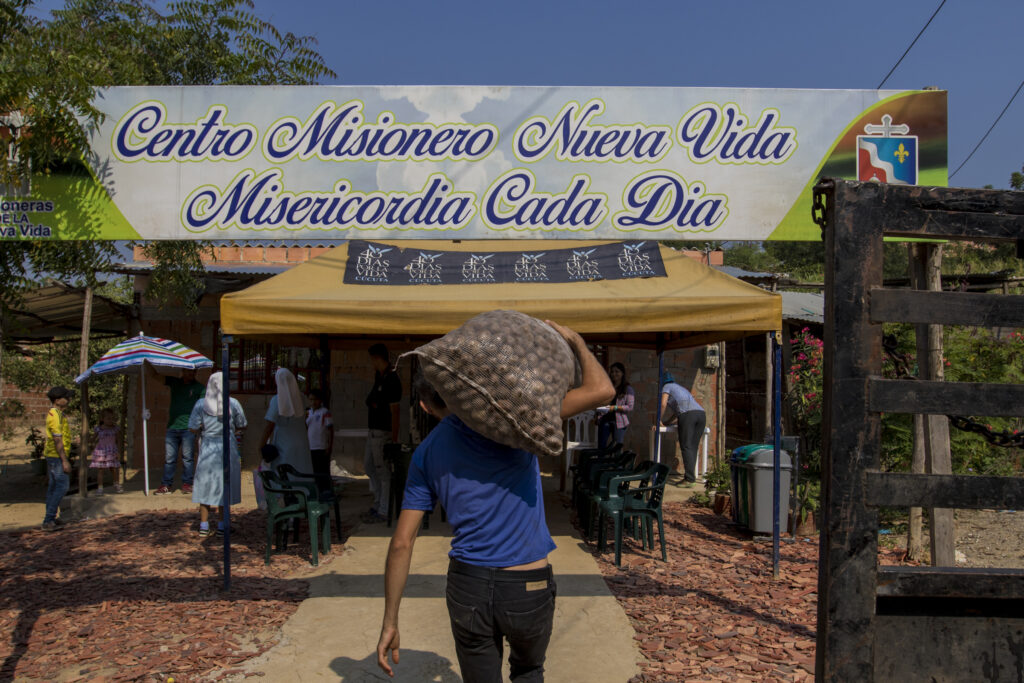
When I arrived the girl was six months old. He completed the year on November 8 and I could celebrate. In Venezuela, even though I rummaged around cleaning houses, I could only feed my daughter and my grandmother. If it reached, I ate.
Finally, evaluate the possibility of building housing in the settlements without discriminating if they are Venezuelan or Colombian families. The organization depends on the donations to execute the projects.
“Here I can give my daughter enough food”
Heydi Dayana Lemus is a Venezuelan from Trujillo state. He arrived in Colombia a year ago. She is 19 years old and has a one-year-old daughter:
“My grandmother has always told me that one can endure hunger, but the creature can not. She encouraged me to come to Cúcuta, she is from here. I have done well, many have shaken my hand. If I need something, I also have the possibility of obtaining it, in Venezuela no.
When I arrived the girl was six months old. He completed the year on November 8 and I could celebrate. In Venezuela, even though I rummaged around cleaning houses, I could only feed my daughter and my grandmother. If it reached, I ate.
That’s why I suffer from gastritis, from enduring hunger. When I did not eat it started to hurt in the pit of my stomach. It was something that turned the whole belly and came back to the pit of the stomach. I stayed quiet so that it could happen to me.
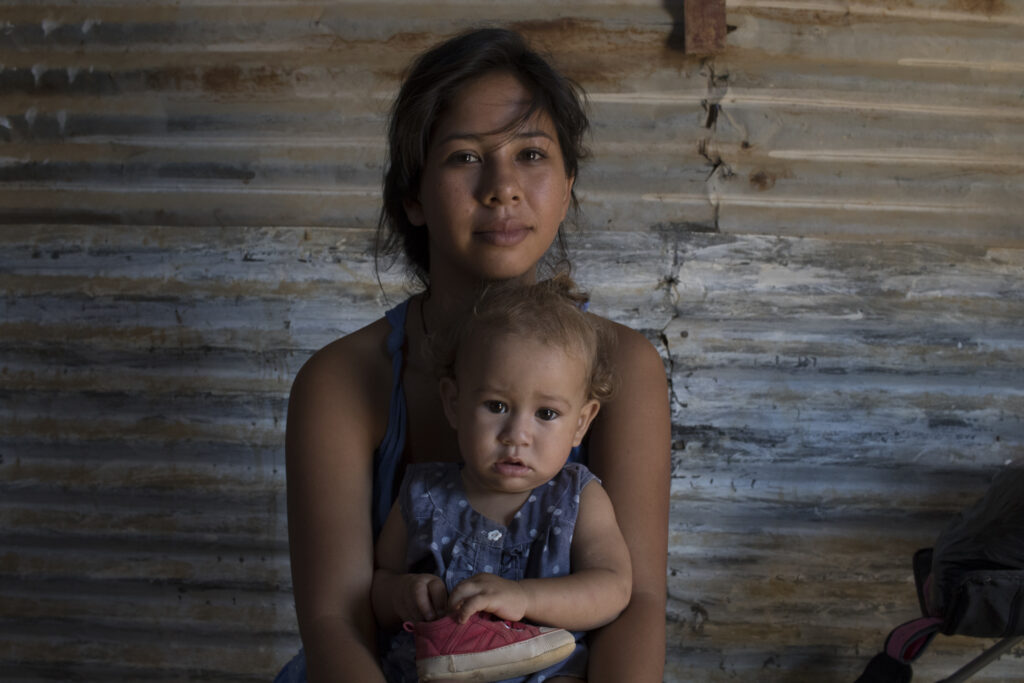
I feel that here is the same as in Venezuela, only that I can give enough food to them. I keep cleaning houses and I grab little jobs that go out there. That’s how I gathered the little things to celebrate the girl’s birthday, it was not a big thing as one is used to, but I celebrated it.
I look at the girl and I see her more chubby. When I brought it to me, it was thin, skinny. I remember that he asked me for food because his chest was not enough anymore. Then I made him sopita, liquefied with some vegetables from the planting that we had. We harvested tomatoes, coriander, yucca, parchitas, topocho, cambus and avocados.
I’m not saying I do not feel better here, of course, I eat again like we did before. But it is not easy. We are cooking on a stove, among the three families we want to buy a stove and a cylinder. We also do not have a refrigerator, so if we are going to buy meat, we prepare it at once. We grab half for lunch and the other for dinner.
The three families met in a shelter located in the Pescadero neighborhood. We decided to go out and find a place to live in an economic zone. In the end they did not lend this lot. They gave us the house to care and we moved on January 23.
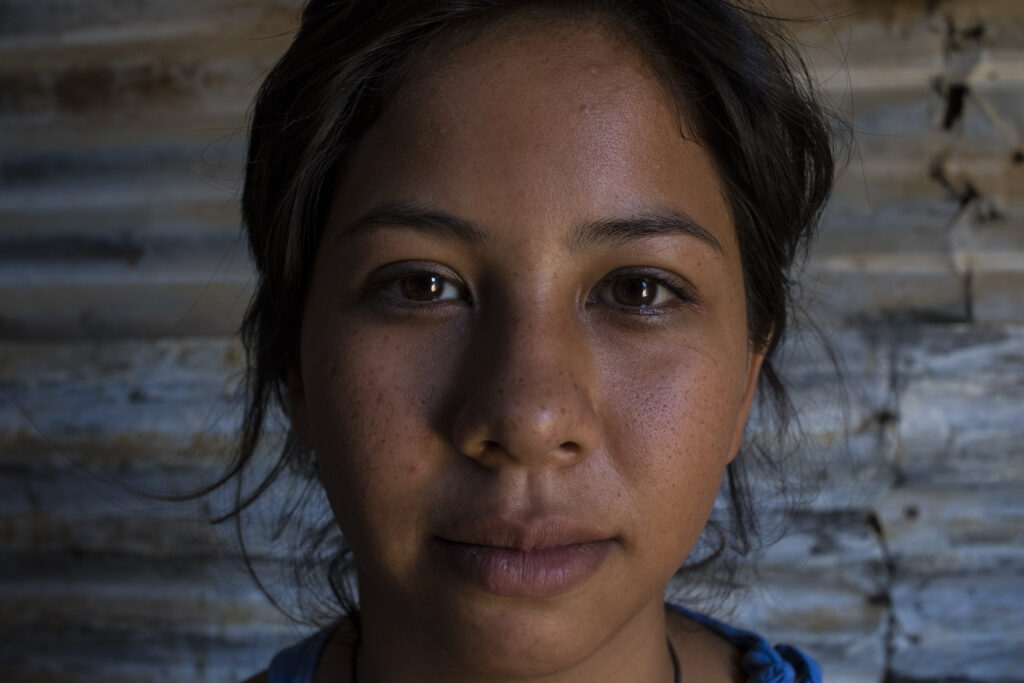
They say the space is small for ten people, but we settled. I sleep here, I put a bag and on top sheet by sheet. My grandmother put them well padded and the girl sleeps on a mat. The other two families sleep on the other side, also on the floor.
My house although it has a cement floor, here with little land and everything, we are fine. Sometimes I see this as a sacrifice, as a test that God puts me on the road. I’m just saying that if my country is recomposed, I go home, to my comforts. “
“For my children I do whatever it is”
Katiuska del Valle Briceño is a Venezuelan migrant from Valencia, Carabobo. He arrived in Cúcuta in October 2018. He has three children:
«I am a merchant, used to work. In Venezuela I sold cocada, water, coffee, but with everything and that, it did not give me the base to buy a kilo of flour. The boys were already bored with eating yucca and grains. I felt that I could not continue like this. I left them with my mom, I also left my things, which I need so much here. We do not have a refrigerator, a bed, corotos. But at least I could bring my children.
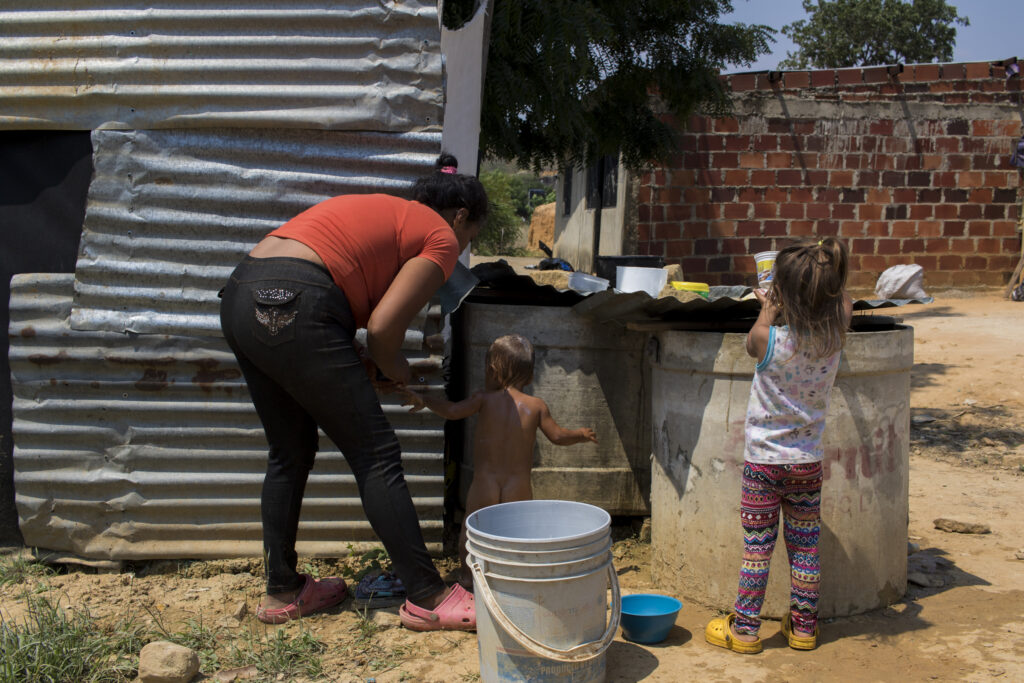
Every fifteen days I traveled to Venezuela and I brought them a sack of food. I was doing very well, but I do not know what happened since the beginning of the year, things to work have become harsh. I started a few weeks ago to recycle, putting my hand in the trash to look for pots and cartons. I walk all that until I reach the center.
The first day when I put my hand in the trash I wanted to cry, I felt chiquitica. I’m not used to that, but for my children I do anything. With what I do, I can buy eggs and flour, with that I leave the breakfast to the children. They pay me 200 pesos for the cardboard and 700 pesos for the plastic paper. With that I can also buy a little chicken and meat.
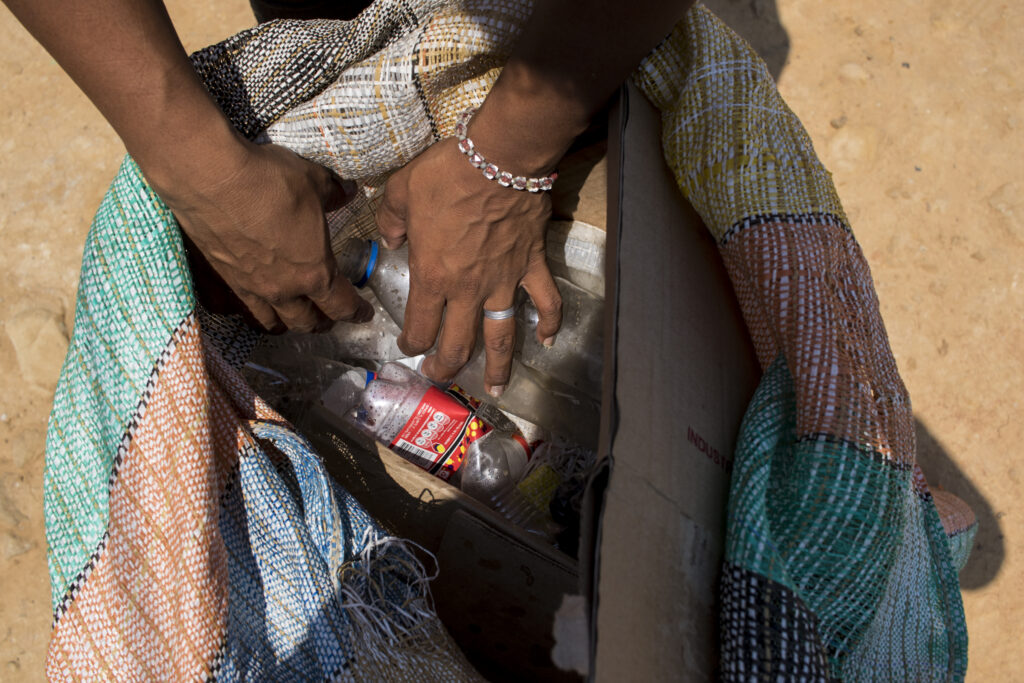
I do not feel tired or I’m paralyzed. I had three thermos to sell coffee, but since I do not have a bottle I can not prepare it. They charged me 2000 pesos for doing it, to pay for that, I prefer to buy a flour.
I want to be in my country, to settle for me and to leave. There I have my house, my entire life. “

